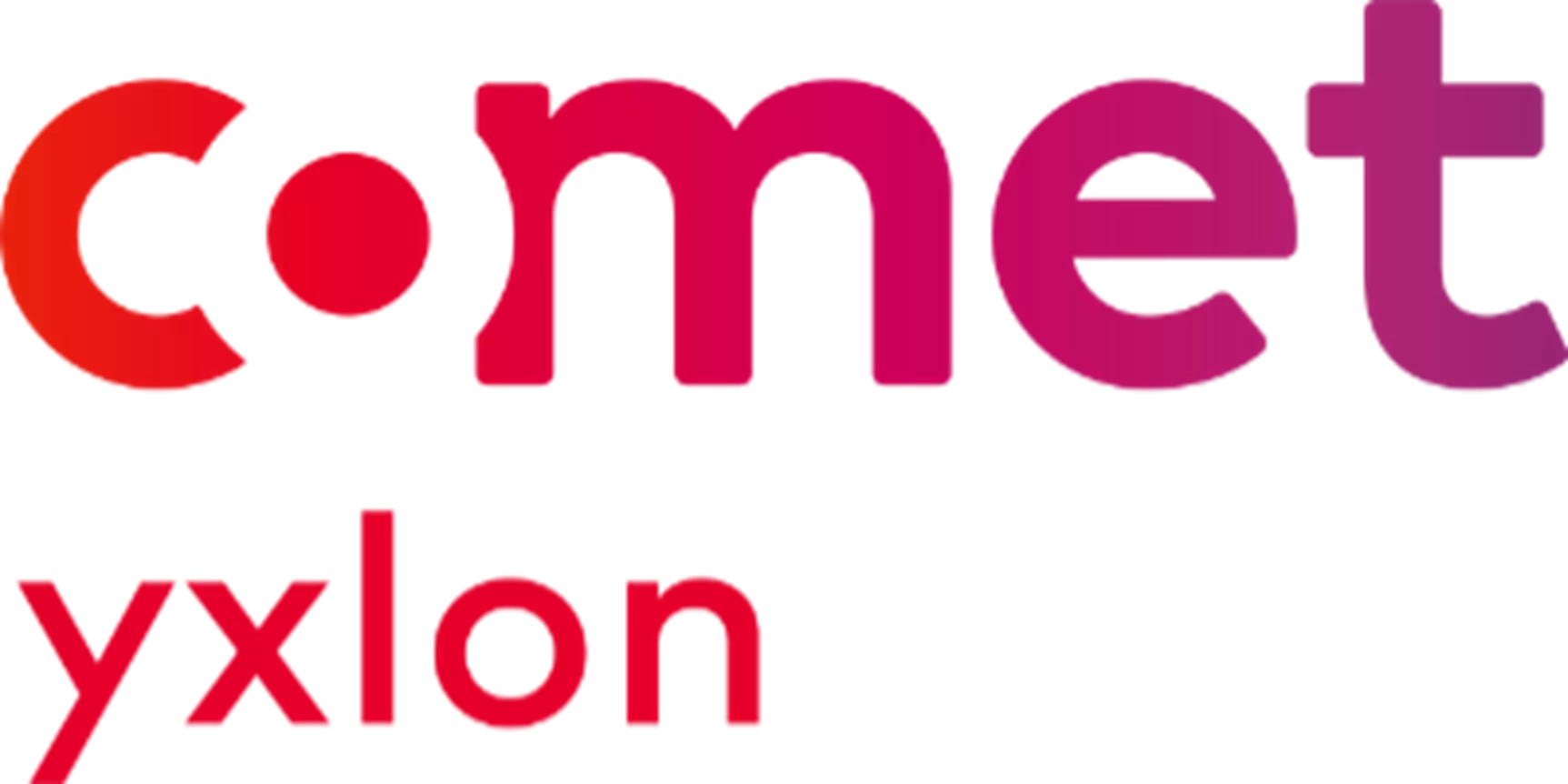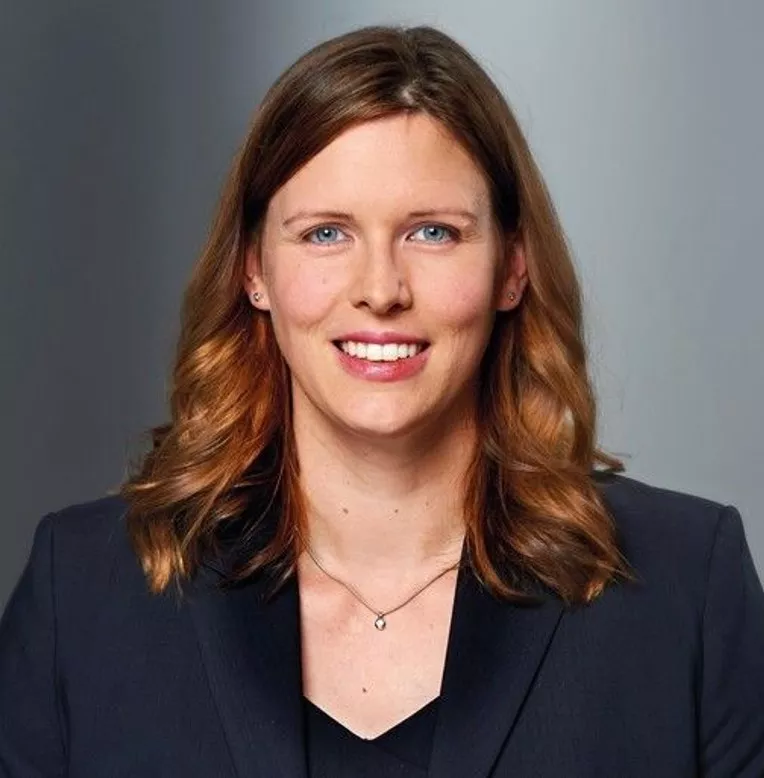
With the talent shortage a continuing headwind to semiconductor industry growth, Isabella Drolz, vice president of Product Marketing at Comet Yxlon, shared with me her views on how inclusive leadership is instrumental to overcoming the shortfall ahead of the SEMI Industry Strategy Symposium Europe (ISS Europe), February 15-16 in Vienna. Drolz will participate in a diverse panel on Closing the Talent Gap and Cultivating the Workforce of Tomorrow.
Comet Yxlon provides X-ray and computed tomography (CT) inspection solutions for R&D labs and production environments, including semiconductor manufacturing facilities, to enhance their productivity.
Melvin: Tell us about your current role at Comet Yxlon and professional experience in the semiconductor and other industries.
Drolz: As vice president of product marketing at Comet Yxlon, I oversee product management for marketing, and our global application solution centers. Comet Yxlon is one of three divisions of Comet AG, a leader in radio frequency and x-ray technology. Comet Yxlon designs, manufactures, and markets high-end X-ray and CT systems and offers data-driven services for non-destructive testing from lab to production environments for the semiconductor, electronics, automotive and aerospace industries.
In a nutshell, we provide our customers the key to efficiency and innovation by seeing Better. Faster. More. Prior to joining Comet Yxlon and the semiconductor industry, I held roles at various companies focused on machinery and engineering, among others, for the defense industry and beyond.
Melvin: When you shifted from the defense to the semiconductor industry, what general differences did you notice?
Drolz: In terms of industry, market, and products, there are significant differences. From a market perspective, the semiconductor industry is much larger than the defense industry. Furthermore, the defense industry primarily produces defense-related hardware and systems while the semiconductor industry produces integrated circuits, microprocessors, and other electronic components that are integrated in every sector and market, including defense.
 The semiconductor industry is driven by rapid advancements in technology, while the defense industry is driven by government contracts and regulations. This is also true for its competitive environment. While the semiconductor industry is highly competitive with numerous players, the defense industry has a smaller number of players and is mainly influenced by the global political environment. Even though the industries, markets, and products vary significantly from semiconductors to defense, the culture and organizational norms surrounding workplace diversity and inclusivity are both rather conservative.
The semiconductor industry is driven by rapid advancements in technology, while the defense industry is driven by government contracts and regulations. This is also true for its competitive environment. While the semiconductor industry is highly competitive with numerous players, the defense industry has a smaller number of players and is mainly influenced by the global political environment. Even though the industries, markets, and products vary significantly from semiconductors to defense, the culture and organizational norms surrounding workplace diversity and inclusivity are both rather conservative.
Melvin: During your time in the semiconductor industry, what changes have you seen in corporate leadership styles and approaches to fostering workplace inclusivity?
Drolz: It is worthwhile to mention that the semiconductor industry, like the x-ray industry, is filled with innovation-driven people and it is easy to connect with customers and individuals alike. Manufacturers and suppliers share an interest in solving problems and bringing value-add to the industry, environment, and quality of life. In recent years, I have noticed that more companies are actively prioritizing team diversity and inclusivity to foster highly innovative workplace environments.
Comet is a great example of this. We are a Swiss-based company, and our official company language is English. The CEO has a Norwegian background, the CFO is American, and the CTO is British. At Comet Yxlon, which is headquartered in Hamburg, the president is Dutch, the VP of Sales is Norwegian/Dutch, and I am Austrian. Comet is a truly international company that understands that thought diversity is instrumental to innovative breakthroughs.
The intercultural environment at Comet fosters creative ways of thinking and problem framing and solving, and also embraces different perspectives in every conversation. That being said, I do wish that more women would take the leap into tech and machine engineering – and especially the semiconductor industry – because given the ongoing digitalization in our society, it is one of the most exciting industries of this century.
Melvin: What organizational changes have been implemented at Comet and why?
Drolz: Comet has put inclusive leadership at the top of its agenda by launching a diversity program that will prepare all divisions, including Comet Yxlon, to foster a more inclusive and equitable workplace culture that values and supports the contributions of all employees.
 Furthermore, we established a more flexible work environment that allows for varied working styles and schedules. In our mobile working program, our employees can arrange where they want to their work and when. Through this program we enabled all employees – and especially women – to establish a healthy work-life balance that is conducive to family life.
Furthermore, we established a more flexible work environment that allows for varied working styles and schedules. In our mobile working program, our employees can arrange where they want to their work and when. Through this program we enabled all employees – and especially women – to establish a healthy work-life balance that is conducive to family life.
At our Comet headquarters in Flamatt, Switzerland, we offer mentorship programs to new hires to provide the necessary guidance to foster personal and professional development. Since the key to the success of any program is transparency and open dialogue, we review progress on a quarterly basis and pivot when necessary.
Melvin: Why is inclusive leadership important?
Drolz: Inclusive leadership is important because it increases innovation and creativity by tapping into different perspectives. It also enhances team performance and morale – through thought diversity – while also improving decision making by considering diverse viewpoints. Basically, it fosters a positive company culture.
Melvin: How can a workplace culture that embraces diversity, inclusion, and employee belonging help companies to overcome the talent shortage?
Drolz: This type of workplace can help companies overcome the talent shortage by attracting a wider pool of diverse candidates. It also encourages employees to bring their whole selves to work and creates a welcoming and supportive environment, which leads to greater creativity and innovation. Inclusivity increases employee satisfaction, morale, and engagement, helping companies attract more candidates.
Melvin: Attracting more women to the industry would certainly help. What does it take for women to be successful in the semiconductor industry?
Drolz: That’s a tough question. I don’t believe that there is a recipe for success. However, a strong work ethic and drive to succeed, combined with a willingness to continuously learn and develop professionally, are critical factors. Throughout your career, you need to overcome obstacles and challenges. Therefore, it’s critical to develop a certain level of resilience and determination.
Mentorship can be instrumental to career development – it has always been for me, personally, and it continues to be. Mentors have helped me to expand my network within the industry; they coached me on how to navigate unforeseen challenges and interact in a conservative environment. Mentorship is an excellent support system that can benefit individuals at all levels.
Melvin: What is your advice to the next generation of female leaders?
Drolz: Believe in yourself and your abilities: self-confidence is the key to success in any field, and it's especially crucial for women in conservative, often male-dominated industries. It’s also important to acquire the skills and experience and belief in yourself to succeed, and don’t be afraid to speak your mind and share your ideas.
Be resilient: The business world can be challenging, and you will inevitably face obstacles and setbacks. Learn from these experiences and build strong ties with your colleagues, who can support you in overcoming challenges and move on. Remember to have fun: the business world can be very stressful, but it’s important that you don’t lose sight of why you’re doing it. Find joy in your work, collaborating with colleagues and goals you achieved together, and don’t forget to celebrate those.
SEMI: At the ISS Europe, you will take part in a panel on Closing the Talent Gap and Cultivating the Workforce of Tomorrow. What should the audience expect from the panel discussion?
Drolz: Closing the Talent Gap is a critical issue of our time. Inspiring school kids, high school and university students, and young professionals to work in the semiconductor industry is key to its long-term success and longevity. It is also crucial to generate awareness that the semiconductor and machine building industries, for example X-Ray and CT, are at the pulse of everything today. People in these industries can really shape the future of our connected, digital and sustainable world.
There are so many exciting innovations – and untapped talent can be part of it. I’ve discovered based on my experiences that transparency and an open dialogue will be fundamental to closing the talent gap, and also to understanding one another better.
 As vice president Product Marketing at Comet Yxlon, Isabella Drolz is responsible for product management, business development, global application solution centers, and marketing. Drolz has an industrial engineering education, a Bachelor of Science degree in International Business Administration, and an MBA degree from Southern Nazarene University in Oklahoma City, Oklahoma. Prior to joining Comet Yxlon, she held management positions in the mechanical and plant engineering industry driving market-oriented product development.
As vice president Product Marketing at Comet Yxlon, Isabella Drolz is responsible for product management, business development, global application solution centers, and marketing. Drolz has an industrial engineering education, a Bachelor of Science degree in International Business Administration, and an MBA degree from Southern Nazarene University in Oklahoma City, Oklahoma. Prior to joining Comet Yxlon, she held management positions in the mechanical and plant engineering industry driving market-oriented product development.
Cassandra Melvin is senior director of Business Development and Operations at SEMI Europe.